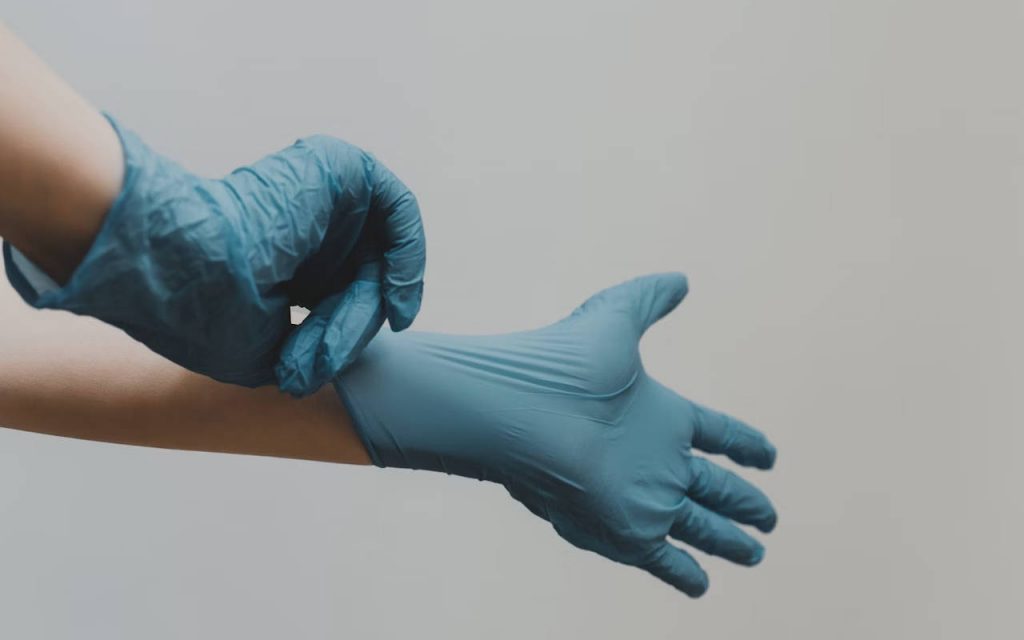Shocking numbers they may be. But can healthcare be delivered without plastic? And is recycling an option for plastic in healthcare?
When we look at the plastic waste produced by hospitals in the UK, we have to be more analytical – because lumping it all together into one big number is a bit disingenuous, perhaps even dangerously misleading.
While the NHS does have a drive to reduce single-use plastics, this simple fact remains; medical devices, tools, and equipment pretty much have to be packaged in medical-grade polythene (or laminates containing plastic). Sometimes, the equipment itself is made of polythene, intended for disposal.
Why? Because the alternatives are less effective, more expensive, more environmentally damaging – and not sterile.
And herein lies the problem. How can you possibly hope to recycle “medical waste” – even if it’s never touched a patient?

Why medical polythene is rarely recycled
Polythene is the most popular material for packaging medical equipment and pharmaceuticals – but hospitals don’t just use polythene for packaging. Hazardous waste bags and PPE are also made of polythene.
But the polythene used for medical packaging is perfectly recyclable, and recycling can be done hygienically.
What’s stopping us? Two things; and number one is the ick factor.
The idea of reusing contaminated waste is repulsive. Nobody wants hospital waste in their polymer blend. But that might be easily addressed, weren’t it for problem number two; segmentation and separation of waste.
There are generally two types of plastic waste in healthcare: clinical and non-clinical.
Clinical waste is the stuff we talked about – PPE, hazardous waste bags, and items that have made bodily contact. Non-clinical waste comes from things like general waste, and the packaging used for medical equipment – all inert and generally harmless stuff.
Clinical and non-clinical waste have to be treated differently to prevent harm to people and the planet. Clinical waste is potentially infectious, so it can never be recycled. It is always incinerated, as this is the only safe way to deal with it.
And this means a lot of plastic waste gets incinerated, too. Blood vials, PPE like tabards and gloves, hazardous waste bags, and so on… A lot of improperly sorted plastic gets the same treatment, too. And that’s not really anyone’s fault.
A lot of plastic products in healthcare have been shown to either ambiguously label their polymer list, or contain a mixture of plastics – making sorting extremely difficult. This is an international medical problem, not isolated to the NHS.
Some plastics can’t be recycled – but people will try to recycle them anyway, believing that it’ll all just come out in the wash.
If we could get over the ick factor, and find ways to properly separate plastic in healthcare, then maybe the use of plastic in healthcare industries wouldn’t be so controversial.
But it’s not all medical packaging…
Hospitals are like miniature cities. They have their own internal systems – and even backup generators and water supplies, to deal with any kind of mains service interruptions. There’s cleaning, catering and admin roles, security and on-site contractors, all working around the clock.
And in each of these services, plastics are being used. Plastic use in healthcare is not an isolated problem, centred around medical packaging; it’s in food packaging, cleaning products, tools and general supplies. So we need to be very careful when we lump all of it together into that “133,000 tonnes a year” figure, because we’d probably all gladly waste some plastic to save a loved one – and plastic packaging is the only viable solution for many medical devices and products.
So, is it a pointless endeavour trying to mitigate plastic use in hospitals? No, not at all.
There are ways to recycle medical polythene, if it’s segmented and separated properly. Some of the barriers are cultural, some are technical – but all are possible to overcome.
The issue in the NHS (and the UK as a whole) right now is resources. There just aren’t enough people, and not enough money to go around. Waste management simply isn’t a priority.
Even our national waste services don’t segment recycling properly, which leads to all kinds of wastage problems.
But even in a worst case scenario, plastic shouldn’t be going into the sea, or even landfill for that matter. With proper filtering, or even the capture of exhaust fumes, the heat from incinerators could be used to generate power, without affecting carbon emissions for the worse.
There really is a way out of this mess. It’s just going to take a bit of action.
Medical packaging systems
We create custom packaging systems using sterile, medical-grade polythene for medical and pharmaceutical use. We can help design more sustainable packaging methods, employing recycled content in any non-sensitive applications, and give advice on minimising plastic waste with smart packaging solutions.
Ready to order? Get a quote now, or call us on 01773 820415.


